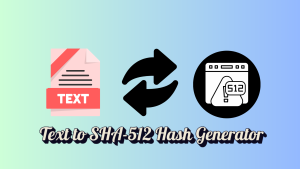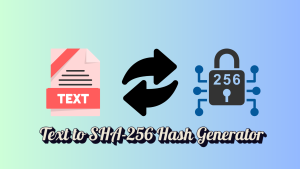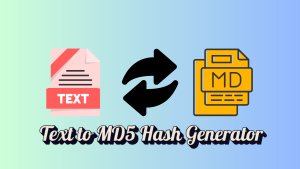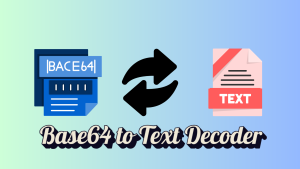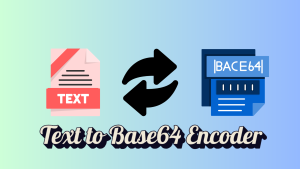Text to SHA-256 Hash Generator
Generated SHA-256 Hash:
🔹 Free Online Text to SHA 256 Hash Generator – Secure Your Data
The SHA-256 hashing algorithm is widely used for data encryption, password hashing, blockchain security, and digital signatures. Our free online SHA-256 Hash Generator allows you to instantly convert any text into a secure SHA-256 hash without any hassle.
🔹 Features of Our Text to SHA 256 Hash Generator
✔ Instant SHA-256 Hash Generation – Convert text to SHA-256 hash in seconds.
✔ Secure & Reliable – Uses the standard SHA-256 hashing algorithm.
✔ Free & No Registration Needed – 100% hassle-free.
✔ Works on All Devices – Mobile, tablet, and desktop-friendly.
✔ Copy & Paste Friendly – Easily copy the generated SHA-256 hash.
✔ No Data Stored – Your input remains private.
🔹 How to Use the Text to SHA 256 Hash Generator?
1️⃣ Enter your text in the input box.
2️⃣ Click “Generate SHA-256 Hash” to convert it into a unique SHA-256 hash.
3️⃣ Copy the SHA-256 hash and use it as needed.
This tool is perfect for developers, security experts, and blockchain enthusiasts who need to quickly generate SHA-256 hashes for secure data encryption. Our All TEXT Tools
FAQ
1. What is SHA-256 Hashing?
SHA-256 (Secure Hash Algorithm 256-bit) is a cryptographic hash function that converts input data into a fixed 256-bit hash value. It is widely used in blockchain technology, password encryption, and digital signatures. More info in wikipedia
2. Why should I use an SHA-256 Hash Generator?
It helps to encrypt passwords, verify data integrity, and store sensitive information securely. It is also a key component of Bitcoin and other cryptocurrencies.
3. Is this tool free to use?
Yes! Our Text to SHA 256 Hash Generator is completely free and requires no registration.
4. Can I reverse an SHA-256 hash?
No, SHA-256 is a one-way hash function, meaning it cannot be reversed. However, brute force attacks and hash lookup tables may be used to find common hashes.
5. What are common uses of SHA-256 hashing?
- Password encryption & security
- Blockchain transactions (Bitcoin, Ethereum, etc.)
- Digital signatures & certificate verification
- Data integrity & checksum validation
- Cryptographic applications
